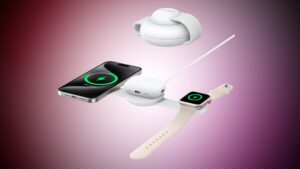Benchmarks show the M4 iPad Pro is faster and smarter than an M3 MacBook Pro
The M4 chip is here, ushering in new state-of-the-art performance in AI with its fastest-ever Neural Engine, according to Apple. That’s fine and dandy, but what we’re really wondering is, how fast is the M4’s CPU versus the M3 chip it’s replacing?
We now have some early benchmarks that give us an idea. Geekbench 6 results have appeared in the Geekbench Browser and @VadimYuryev of Max Tech spotted them and posted the results on X. The numbers show that the M4’s CPU offers a 22 percent improvement over the M3 in single-core performance and a 25 percent boost in multi-core speed.
We usually see a 15 to 20 percent CPU improvement from one chip generation to the next, so these results are slightly better than the typical boost. @VadimYuryev also points out that the base M4 is faster than an M3 Pro, but since Apple started its M-series chips, we often see that the base chip of the new generation is as fast or a bit faster than the previous Pro chip.
Early Geekbench ML results: Testing AI
But back to the AI stuff. The Geekbench Browser is great because it hosts the results files of tested chips, which means you can find all kinds of results–including results for the Geekbench ML test, which is used to gauge machine learning performance. (Geekbench says its ML test, “Includes machine learning workloads that model real-world AI tasks and applications.”)
If you look in the Browser, you’ll find ML test results for the M4 iPad Air, which is identified in the Browser as “iPad16.6.”. At the time of this writing, two Geekbench ML results have been filed for the M4’s Neural Engine. We then ran the Geekbench ML test on an M3 MacBook Air and an M3 Max MacBook Pro, and here’s how the numbers compare (our MacBook scores are an average of three test results):
M4 iPad Pro (16GB RAM): 8867/9004
M3 MacBook Air (16GB RAM): 8013
M3 Max 16-inch MacBook Pro (48GB RAM): 10934
These early results show that the M4 is about 12 percent faster in Neural Engine performance than the base M3. It also seems to be impacted by the amount of RAM in the system. We need to do more testing and analysis to better understand the scores, which is what we plan to do when we review the new M4 iPad Pro.
We don’t know when Apple plans to bring the M4 to the Mac, but one thing is true—if you recently bought an M3 MacBook, you’re feeling a little FOMO right now.
CPUs and Processors, iPad, Mac




